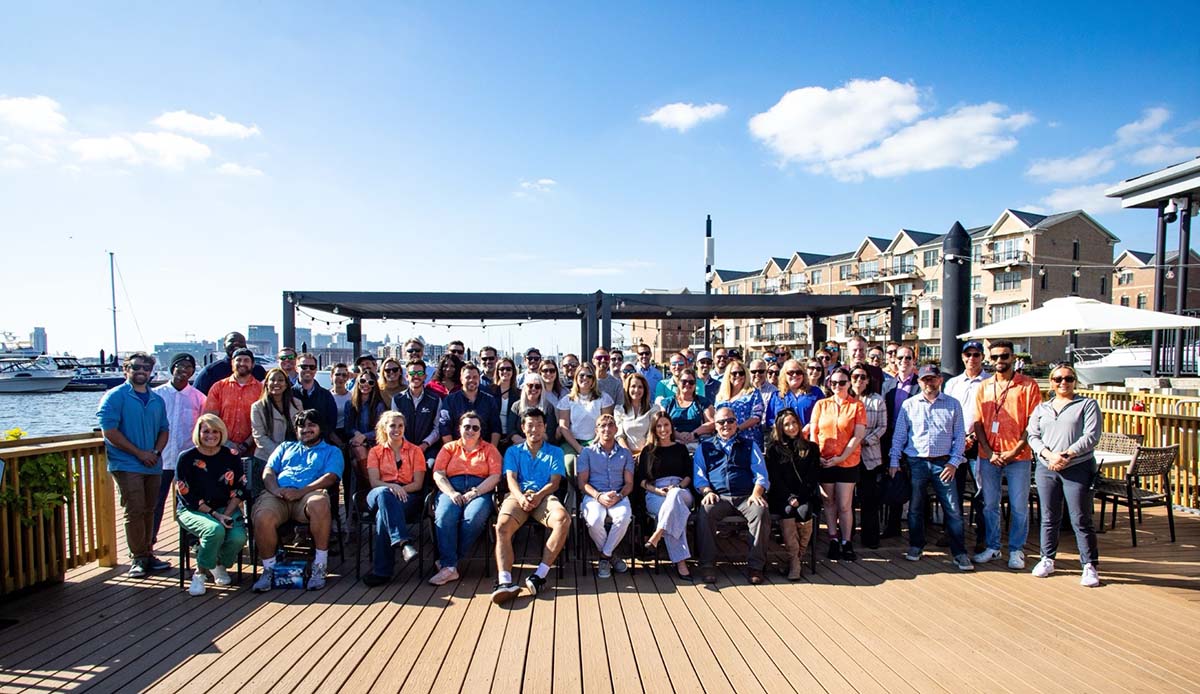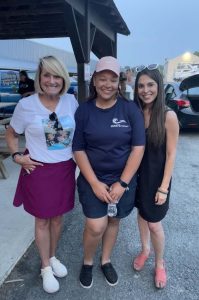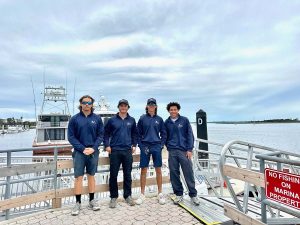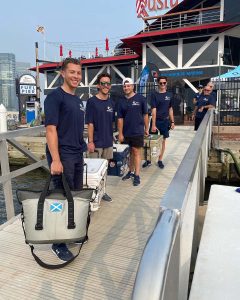
Career Path Training Helps Build the Marina Workforce
Published on April 7, 2024The marina industry has evolved from hiring people who know a line from a rope, diesel from gasoline and how to dock a boat, to bringing aboard staff well-versed in hospitality. Marinas are no longer just places to store a boat, but full resorts so the evolution of bringing aboard people who can communicate with customers is expected. Oasis Marinas, a Maryland-based marina management company, has embraced that change, and the company’s initiatives have paid off as it continues to expand with about 360 full-time employees and another 400+ seasonal.
Behind much of the success of building a top-notch team is Paul Goldsholl, director of talent for Oasis. Goldsholl started his career in the hotel industry, moving from valet through the ranks to a newly established role of regional trainer. In that position he developed on-boarding, training and leadership development programs, eventually impacting 13,000 teammates and resulting in an 87% internal promotion rate for leadership roles. With this background, he was an obvious choice for Oasis when he was hired back in 2017.
Moving Through the Ranks
One of Goldsholl’s early initiatives was the Propel program aimed at forming career pathways for operations personnel who want to transition to

management roles. Propel was built to provide leadership and career opportunities to those already working within Oasis. The goal is to expose teammates to the functions of managers from marketing to finance to client management. “Every marina is unique, and what we really wanted to do was find a universal tool to make sure whatever operation someone is currently doing, they have exposure to all other operations so as they move up they aren’t hit with doing things they know nothing about,” Goldsholl said. There is a learning curriculum and a development checklist with 50 experiential tasks that individuals work through with their leaders. The team also meets at the home office once a year to learn more about executive leadership roles firsthand.
Recruiting for the Future
Goldsholl’s “Recruiting, Evaluation and Succession Planning” program is a format and evaluation tool used internally for hiring qualified leadership candidates. Goldsholl built the program, inspired by the book Scaling Up by Verne Harnish, as well as a companion training program that the Oasis leadership attended. The program is referred to as “top grading” and is a combination of scoring sheets and interview questions with a grading criterion. “It’s our way to evaluate candidates in a consistent and fair way. I always look to build systems and processes that protect against unconscious bias. This levels the playing field and ensures candidates are scored on merit,”
Goldsholl said. By using the tool, the interview team knows what separates potential hires as someone who meets expectations vs someone extraordinary. Goldsholl said the company has been using the program for three years and has found interviewees feel good about the conversations they’ve had and that the interview was a productive use of their time, no matter if they get the job or not. That fosters goodwill as Oasis strives to hire internally.

Goldsholl’s aim with all his efforts has been to provide opportunity and growth for those who are hired and to recruit people by letting them know the marine industry can provide a career path. “Going from a dock hand to a corporate support role is possible, but sometimes we find people in marina positions who are just waiting for someone to retire before they can move up. That’s not an attractive position for anyone looking at working for a marina. Oasis offers so much more,” Goldsholl said.
A key component in recruiting those looking for a career path is the language used in job postings. “A lot of the marina industry’s recruitment problem is the language we use. The marine space is very attractive, and there’s a ton of symmetry between the hotel and marine industries, but someone looking for a hospitality or customer service job wouldn’t know to search under dockhand,” Goldsholl commented. He said Oasis recruits for Marina Guest Services candidates, retaining the dockhand language within the ad, but casting a wider net to attract that hospitality manager looking for something new. By parsing out the marine industry lingo, he’s also found a more diverse pool of applicants.
The marine industry has traditionally not been very diverse, meaning someone who knows what a dockhand is often is a young white male, whereas those looking within the hospitality field cross genders and ethnicities. Goldsholl said the language the industry uses can make a big impact on what things look like in the future.
Goldsholl’s next workforce development program is set to launch later this year. Titled Making Waves, this program emphasizes corporate team development, giving exposure to what leaders need to elevate their personal brand, whether marketing, sales, accounting or similar home office positions.

“This program will help people build both their internal and their external resumes. We identify what someone aspires to do and then deconstruct the resume of an ideal candidate for that role. We provide the roadmap for how to get there,” Goldsholl said. He added that he understood that training like this could mean a teammate takes a job with another company. “I hate to lose a teammate, but if we do because they grew and found an opportunity, then I’m happy for them.” In this way, the program is not just valuable to Oasis, but to the industry as a whole, a “we’re all in this together” mentality that Goldsholl said the marine industry should embrace to move forward. While Making Waves is set for management-level employees now, the hope is that it can be expanded. “Experience takes time, takes years, and we want to fast track it, changing from looking at how long you’ve done something to how productive you’ve been.”
For Goldsholl, whose career he said was built from hard work and opportunities, opening the door to help others grow within the industry is just common sense. He hopes his efforts with Oasis will help shore up what has traditionally been a fractured industry, to show there are valuable and lasting career paths open to anyone willing to work.
| Categories | |
| Tags |




